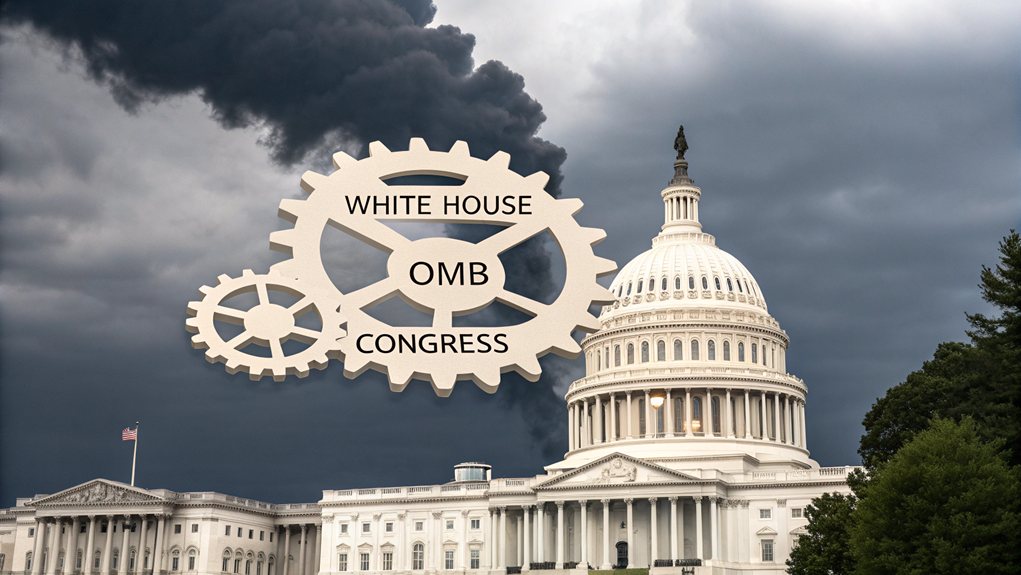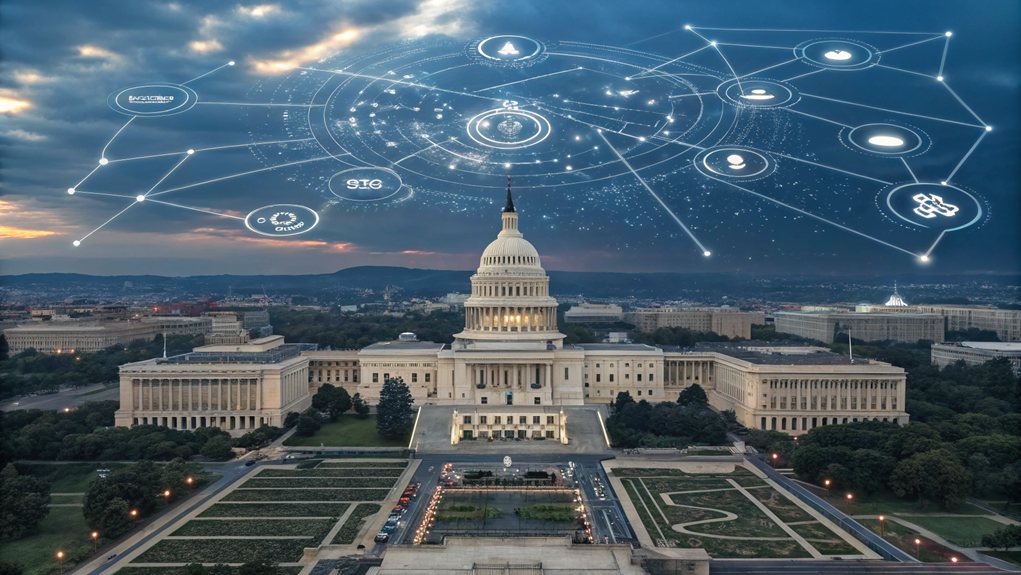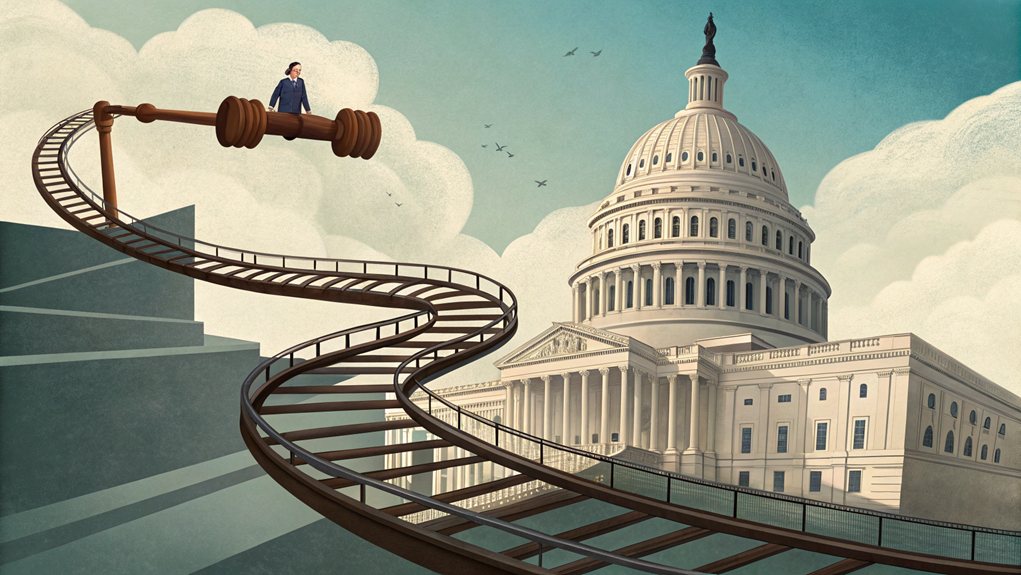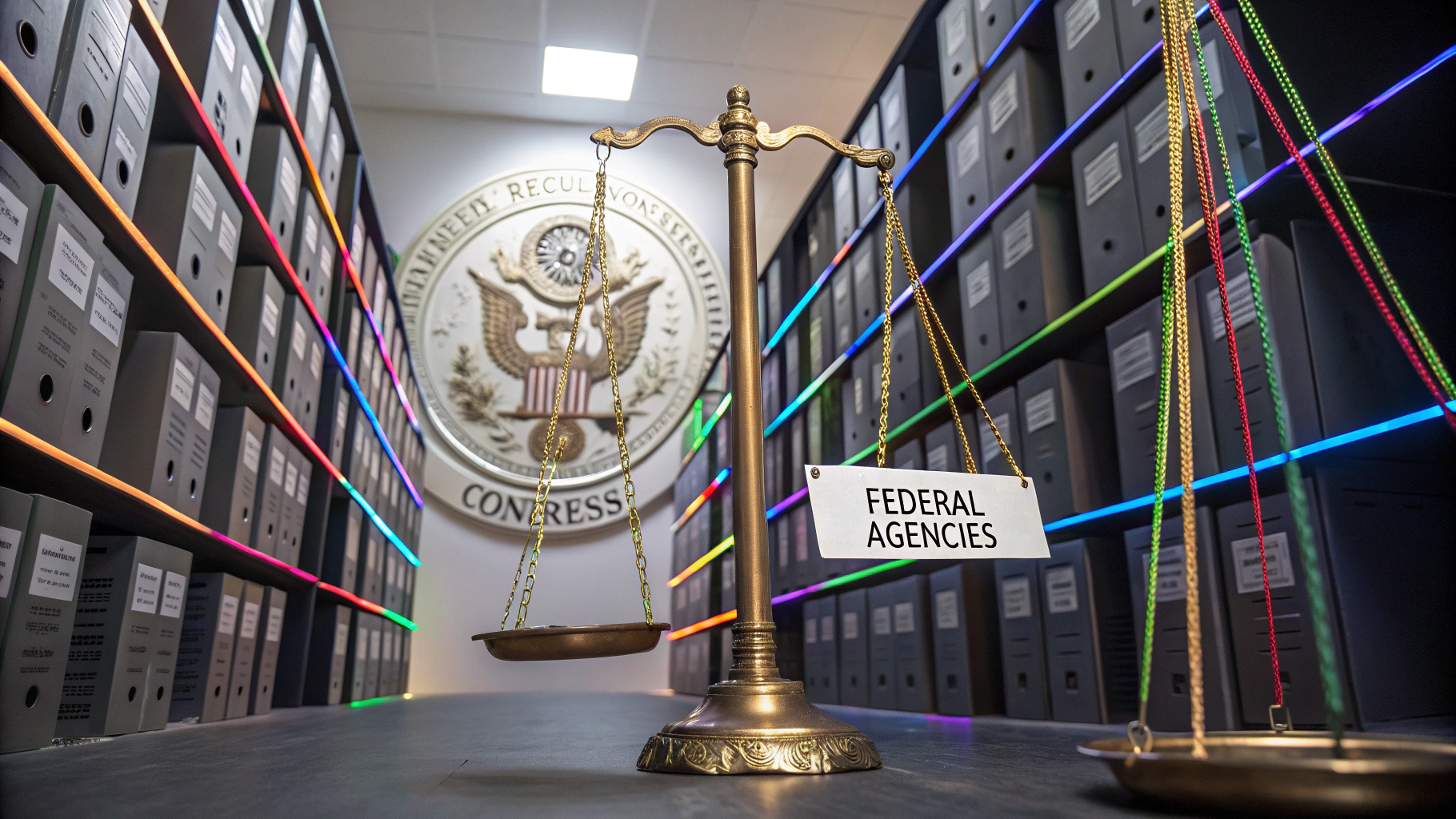The federal budget process in the U.S. starts almost a year in advance. Agencies craft proposals with help from the Office of Management and Budget. The President then requests funding from Congress, typically in February. Spoiler alert: Congress often ignores it. They draft their own resolutions, which can lead to protracted debates and amendments. It's a tedious, chaotic circus that can involve conference committees to settle discrepancies. But hey, there's more to this wild ride if you're curious.

The federal budget process in the U.S. is a beast of a system, a chaotic dance between the White House and Congress that can feel less like governance and more like a high-stakes game of tug-of-war.
It all kicks off in July of the previous year when the White House Office of Management and Budget (OMB) starts guiding federal agencies to whip up their budget proposals. Agencies scramble to follow OMB's guidelines. They're just trying to get their slice of the pie, but it's OMB that ultimately decides what gets served.
Come February, the President rolls out a detailed budget request to Congress. This isn't just a casual suggestion; it lays out funding priorities, economic outlook, spending, and revenue for the coming year. Think of it as a wish list that Congress might just toss in the trash. The budget request is a comprehensive budget request compiled by OMB from input by various federal agencies. The fiscal policy decisions embedded in the budget proposal reflect both domestic priorities and the external economic environment.
The House and Senate then create their own budget resolutions, which usually clash with the President's proposal and with each other. It's like watching a couple of toddlers argue over a toy.
The appropriations committees plunge into the budget requests, holding hearings that can feel more like interrogation sessions. They sift through the proposals, amending them into appropriations bills, which must then pass through both chambers. During this time, the OMB makes final decisions on agency budget proposals, which adds another layer of complexity to the process.
If the bills differ between the House and Senate, they go to a conference committee, where the drama continues.
And let's not forget the reconciliation process. If spending or revenue levels need tweaking, committees are tasked with reporting back legislation. This often results in a hefty bill that can adjust tax rates or mandatory spending.
It's a tangled web, all while the public debt limit hangs like a dark cloud overhead.
In the end, it's a mess. A chaotic, bureaucratic mess. But somehow, this dance continues year after year, as politicians navigate the tightrope of funding the government.
The stakes? Just the future of the nation's finances. No pressure, right?
Frequently Asked Questions
How Does the Federal Budget Affect State Budgets?
The federal budget is like a puppet master, pulling strings on state budgets.
States depend on federal funds—30% on average, more in some places. Cuts? Yeah, they hit hard, especially with Medicaid.
States scramble to adjust, often having to ditch essential services. It's a rollercoaster of financial chaos.
Economic downturns? Just icing on the cake.
What Happens if the Budget Is Not Approved on Time?
If the budget isn't approved on time, chaos reigns.
Think government shutdown—staff sent home, services halted. Yeah, it's a mess. Congress might throw together a continuing resolution, just to keep the lights on.
But that's like putting a Band-Aid on a gaping wound. Economic stability? Forget it. Public trust? Eroded faster than a sandcastle at high tide.
Who Can Propose Changes to the Federal Budget?
Changes to the federal budget can be proposed by various players. The president? Absolutely. Members of Congress? You bet.
Even federal agencies can throw their hats in the ring. Basically, anyone with a stake can suggest tweaks, but don't hold your breath.
It's a crowded field, and not every idea gets a warm welcome. Still, it's all part of the chaotic dance that keeps the budget process lively—if you can call it that.
How Are Budget Deficits Addressed in Future Budgets?
Addressing budget deficits isn't just a task; it's a circus act.
Tax hikes on the wealthy? Sure! Cuts to defense? Why not! Social Security reforms? Let's dance on that tightrope.
Everyone's got ideas, but the real kicker is managing healthcare costs—those are a budget vampire. The aging population doesn't help either.
Bottom line: it's a complex mess, and everyone hopes for economic growth to save the day. Good luck with that!
What Role Do Interest Groups Play in the Budget Process?
Interest groups are like the loud kids in the lunchroom, demanding attention for their favorite snacks. They lobby hard, raising cash to influence where the budget goes.
Think health programs, education, and environmental projects. It's all about that sweet discretionary spending. They even attach riders to budget bills—sneaky, right?
Their power can sway decisions, ensuring funds flow to their preferred projects, not just whatever's on the menu that day.









